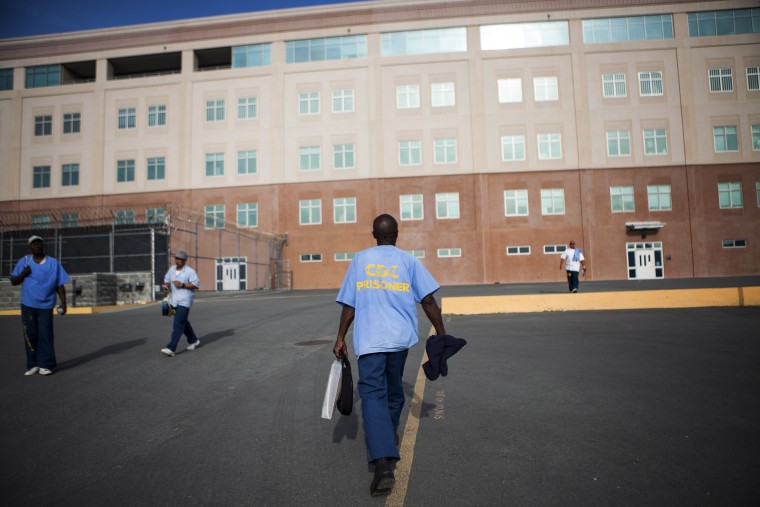LITTLE ROCK, Arkansas -- America is reaching a broad consensus that too many people are spending too many years in prison, former President Bill Clinton said Wednesday, and he predicted the issue will play prominently in the 2016 presidential election as politicians from both parties push to make changes.
"We basically took a shotgun to a problem that needed a .22 -- a very significant percentage of serious crimes in this country are committed by a very small number" of criminals, Clinton told the 70 or so mayors and law enforcement officials who were gathered at his presidential library here in part to celebrate the 20-year anniversary of the community policing program he founded as part of the 1994 crime bill.
It wasn't Clinton's only reference to presidential politics: As he took the podium, he drew laughs from the crowd when he said, "the great thing about not being president is you can say whatever you want -- unless your wife [Hillary Clinton] might want to run for something."
The meeting of the U.S. Conference of Mayors here came after a summer of violence and unrest in Ferguson, Missouri following the death of unarmed black teenager Michael Brown at the hands of a white police officer -- and amid a widening spotlight on incidents of police using force against citizens. This week, an Indiana man sued police after what he claims was excessive force used during a traffic stop.
The mayors and police chiefs were set to meet privately Wednesday to discuss the events in Ferguson and how to move forward; that session was closed to the press.
Clinton touched on the events in Ferguson during a lengthy speech, though he largely praised the speed with which the community returned to normal after the protests broke out.
"We know that if we have a situation where the law enforcement community and the government generally is inclusive and represents all elements of the community and connect -- we're more likely to make good, decent decisions and less likely to make big, bad mistakes," Clinton said.
As president, Clinton started Community Oriented Policing Services -- the COPS program -- as part of the 1994 crime bill. The COPS program put more police officers on America's streets and emphasized policing strategies aimed at integrating officers into the local community.
The lesson of Ferguson, Clinton said, is that "we cannot afford not to know our neighbors. It doesn't matter if they don't vote the way we do. It doesn't matter if they don't worship the way we do -- it doesn't matter if we don't look the way they do. We cannot afford to not listen to and know our neighbors."
Attorney General Eric Holder also touched on events in Ferguson, though he didn't mention Michael Brown by name. The events in Ferguson "focused the national spotlight on the rifts that can develop between police officials and the citizens they are supposed to protect," Holder said, saying that he had traveled to the St. Louis suburb and pledged that "our nation's department of justice would remain focused on the challenges we faced."
"We're taking robust and sweeping action to make good on the pledge that we made," Holder said.
The event also served as a farewell of sorts for Holder, who is leaving his post as attorney general. St. Louis Mayor Francis Slay thanked Holder for visiting Ferguson.
"You brought with you a high level of credibility, certainly a high level of hope as well to the community that this government cares, that the White House cares, that the Department of Justice cares, and that was a big, big deal," Slay said.
